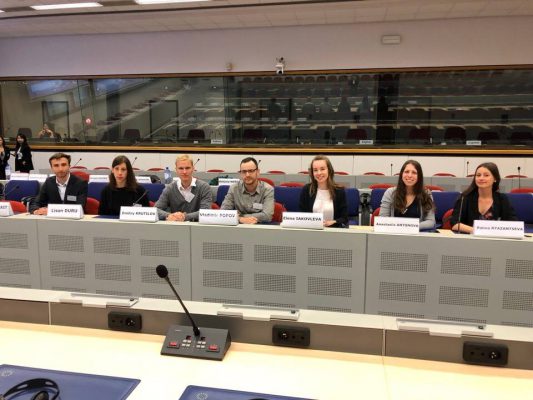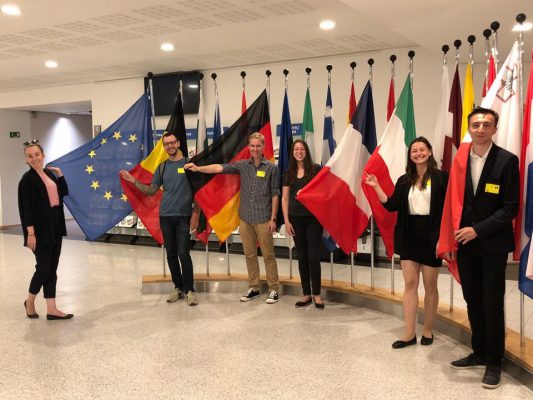MA students’ Summer Traineeship in the institutions of the EU
 MA students of the Caspian Higher School of Interpreting and Translation have the opportunity to increase their knowledge and acquire new skills in the largest international organizations every year. Our MA students have undertaken the traineeship in the European Commission, European Parliament and other EU institutions this summer. Students from INALCO, who studied at the CHSIT under the exchange program the last semester, also joined them.
MA students of the Caspian Higher School of Interpreting and Translation have the opportunity to increase their knowledge and acquire new skills in the largest international organizations every year. Our MA students have undertaken the traineeship in the European Commission, European Parliament and other EU institutions this summer. Students from INALCO, who studied at the CHSIT under the exchange program the last semester, also joined them.
The program for MA students was truly intense and quite eventful. There were many general visits organized including those to the European Commission, European Parliament and the EU Council, visit to the House of European History, lectures in the Directorates-General for Interpretation and Translation and, of course, interpreting in a “dummy booth” under the supervision of interpreters from the European commission. The topics of the meetings varied considerably: on the first day of the simultaneous interpreting the students worked at the meeting devoted to the social security systems in one of the Commission’s building, and on the second day they first interpreted at the meeting on establishing economic relations between the EU and a number of states from Asia and Oceania, and then they interpreted at the meeting on crowd funding.
 The interpreters who worked with the MA students gave them precious advice and recommendations, provided guidance to the further professional development and assured the students that working for the European institutions is more than possible. After the traineeship in Brussels, the students had to visit the translation service of the OECD in Paris and INALCO, a partner university. A warm welcome, hospitality and interpreters’ interest to work with the trainees expected the MA students everywhere.
The interpreters who worked with the MA students gave them precious advice and recommendations, provided guidance to the further professional development and assured the students that working for the European institutions is more than possible. After the traineeship in Brussels, the students had to visit the translation service of the OECD in Paris and INALCO, a partner university. A warm welcome, hospitality and interpreters’ interest to work with the trainees expected the MA students everywhere.
This trip complimented the MA students with incredible emotions, boundless motivation to perfect their skills in interpreting and gave the opportunity to prove themselves in literally “field conditions”.





